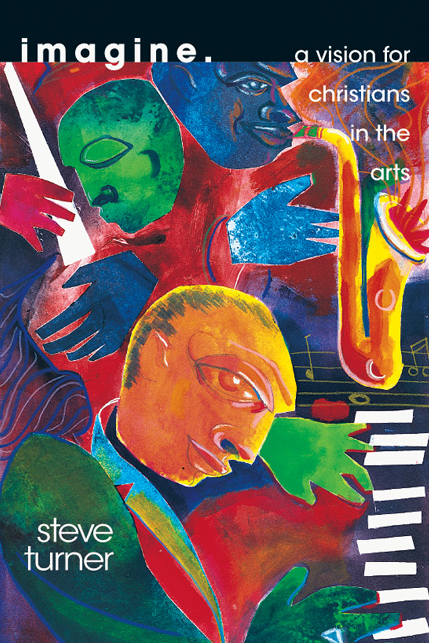 IN ONE SECTION of his book “Imagine: A Vision for Christians in the Arts” (Madison, Wisconsin: InterVarsity Press, 2001, pp. 131), author Steve Turner discusses the Catholic Church’s approach to art. Though not a Catholic, Turner obviously knows Church documents and the work that some outstanding Catholic artists have produced.
IN ONE SECTION of his book “Imagine: A Vision for Christians in the Arts” (Madison, Wisconsin: InterVarsity Press, 2001, pp. 131), author Steve Turner discusses the Catholic Church’s approach to art. Though not a Catholic, Turner obviously knows Church documents and the work that some outstanding Catholic artists have produced.
In discussing the Church’s approach, Turner quotes the following statement from Vatican II:
“In their own way literature and art are very important in the life of the Church. They seek to give expression to man’s nature, his problems and his experience in an effort to discover and perfect man himself and the world in which he lives; they try to discover his place in history and in the universe, to throw light on his suffering and his joy, his needs and potentialities, and to outline a happier destiny in store for him. Hence they can elevate human life, which they express under many forms according to various times and places.” (pp. 32-33)
This statement conveys what I believe about the importance of art. Art really can elevate life. I am especially interested in calling attention to the artistic treasures that are available in film and literature created by Catholics. These treasures, I have come to believe, may provide a special blessing to those involved in evangelization. Seeing films or reading novels that directly or indirectly present a Catholic vision of reality can challenge and deepen a person’s faith. Such art can even inspire.
In discussing what Catholic artists have contributed in motion pictures, Turner mentions John Ford, Frank Capra and Alfred Hitchcock. While doing graduate studies in philosophy, I became interested in film as an art form that could present the mystery of the human person. I had seen many films directed by Ford, Capra and Hitchcock, but looked at them as enjoyable escapist entertainment. Through the insights of some critics, I began to realize that films could be as enriching as any of the arts. Ford, Capra and Hitchcock made films that were not only commercially successful, but also significant works of art.
Perceptible Presence of God
Turner also mentions the French director, Robert Bresson. Noting that some think of Bresson as the greatest of Catholic filmmakers, Turner writes that Bresson “wanted his work to make a person’s soul and the presence of God perceptible to an audience.” I think that films – at least indirectly – can do exactly what Bresson aimed to do.
In his book, “What Is Cinema?,” Andre Bazin, commenting on Bresson’s film version of George Bernanos’ great novel “The Diary of a Country Priest,” wrote the following:
“So, probably for the first time, the cinema gives us a film in which the only genuine incidents, the only perceptible movements are those of the life of the spirit. Not only that, it also offers us a new dramatic form, that is specifically religious – or better still, specifically theological; a phenomenology of salvation and grace.”
In writing about the contributions of Catholics in literature, Turner mentions Evelyn Waugh, Graham Greene, Francois Mauriac, Walker Percy, Flannery O’Connor, Bernanos and Shisaku Endo and correctly notes that each dramatized, in different ways, the tensions created by living the faith in a world in which faith has been largely lost.
As I was working through Turner’s book, I received welcome evidence of the power of Catholic novels: evaluations from students who took the course I taught at St. John’s University on philosophy in the Catholic novel. I have been teaching the course for several years and students always seem to enjoy it. However, this time, the reaction was special. One student commented that the course changed his life. Another wrote that he wanted to continue to read “Catholic novels.”
What impressed the students were not my efforts at teaching but the ideas and insights into religious faith that were presented in the novels.
Father Robert Lauder, philosophy professor at St. John’s University, Jamaica, is the author of “Pope Francis’ Spirituality and Our Story” (Resurrection Press).
